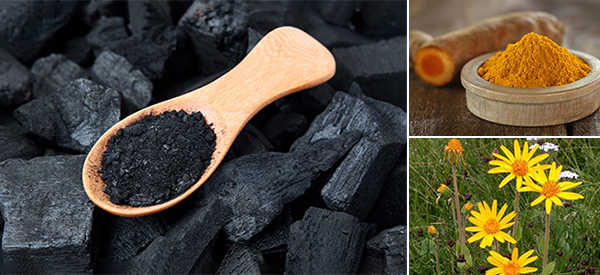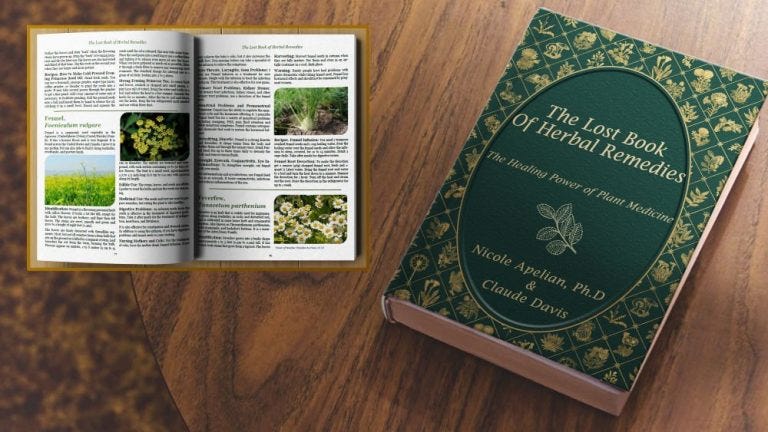
This article was originally published by JESSICA THOMAS on askaprepper.com
We can all agree that as we age our skin goes through a lot. In fact, some of us have the scars, wounds, and blemishes to prove it! Maybe an old scar from a bike ride gone wrong in our youth, or a faded nick that happened while cooking. However, no matter what the scar is, each one has a story behind it.
But wouldn’t it be better to keep the stories without having the wounds? Or, at least, to have them heal a little faster? There’s no doubt about it; the older we get the longer it takes for wounds to fade, heal, and become a thing of the past. Fortunately, there are natural remedies that our wonderful Earth has provided us with. In this article, we’ll explore nine natural remedies that are known to heal wounds faster.
Activated Charcoal
Charcoal is one of the best natural remedies for healing skin. Activated charcoal can draw foreign objects, like a splinter, out of the skin. It’s even great for absorbing infections when applied as a paste.
So, don’t forget about activated charcoal when you’re dealing with a cut, scrape or insect bite! Although it has a black hue, it will not stain your skin.
Chamomile
When most people think about chamomile, they usually think of it as a tea that promotes relaxation. However, there’s much more to chamomile than that. Like honey, chamomile also has anti-microbial and anti-inflammatory properties. It can be very useful in reducing the pain and inflammation that often accompanies wounds.
If you want to accelerate wound healing, use chamomile as a wash or salve on red, inflamed wounds to reduce irritation. Applying a damp chamomile tea bag to the wound will do the trick. You can also use a chamomile balm or a paste of dried chamomile flowers. If you want to keep it old school, then just drink it. Consuming it orally also promotes faster healing.
Turmeric
A spice found in many of our kitchen cabinets, turmeric is considered an antiseptic and antibiotic agent. Curcumin, an active compound in turmeric, can modulate collagen. Therefore, if you have a wound that just won’t stop bleeding, apply turmeric and it should stop almost immediately.
Related: How to Make All-Natural Homemade Turmeric Pain Pills
Pure Honey
Pure honey, also known as Manuka honey, has antimicrobial and antibacterial properties. This substance is also acidic, and research shows that wounds with a high alkaline pH have a lower healing rate.
If you’ve suffered a burn, try using pure honey. Apply the honey directly to the burned area for faster healing. In addition, research has shown that patients with diabetes who have developed leg ulcers benefit from honey too. One herbalist recommends spreading honey across the cleaned wound and just covering it with a bandage. Change it out every 2-3 days to achieve the maximum effect.
Aloe Vera
Aloe Vera is a common ingredient in cosmetic products, but you can also buy this sword-shaped plant at the grocery store. For years, the aloe gel has been used to heal scrapes and burn wounds. It’s actually not uncommon for chefs to keep it in their kitchen just in case they burn themselves.
If you have dry skin, accidentally cut yourself, or have a burn, then just rub aloe vera on your skin. It’s the perfect moisturizer and pain reliever.
Calendula
Calendula, or marigold, is a colorful plant that’s often used to treat eczema or poorly healing wounds. The calendula oil extracted from marigold flowers can be applied directly to the affected area of skin. Doing so provides individuals with almost instant pain relief and reduced inflammation.
Calendula oil promotes the growth of new tissue in wounds, so it’s perfect for minor injuries. The oil can also be used to treat diabetic foot ulcers and peeling lips. When combined with aloe vera, it is said to greatly accelerate wound healing.
Garlic
Did you know garlic was used in World War I to prevent soldiers from getting infected after enduring an injury? Garlic is so much more than a food enhancer; it’s also top-notch for wound healing. With its anti-inflammatory, antioxidant, and antibacterial properties, garlic can accelerate collagen maturation in injured skin tissue.
If you have psoriasis, eczema, or dry cracks in your skin, then try garlic. Rubbing a little garlic oil on your skin should clear the affected area right on up.
Comfrey
Comfrey is a plant that actually contains poisonous chemicals, so it should be used with caution. It should never be consumed orally or be applied directly to broken skin. Doing so could lead to liver complications and an infection.
However, when comfrey is used correctly, it heals fast. A salve made of comfrey leaves is perfect for accelerating the healing process of bruises, abrasions, and healing scar tissue. This powerful plant can reduce cellular inflammation significantly.
Arnica
Arnica, also known as mountain daisy, is a yellow-orange flower that’s commonly used after surgeries. Patients who have bruising following surgery can use this plant to boost healing. The plant gel can be applied directly to the skin and doesn’t have a greasy feel like some other solutions.
A 2010 study found that arnica was more effective than vitamin K for reducing bruising. However, it should not be used on broken skin or open wounds. Doing so could actually irritate the skin and lead to contact dermatitis.
The Pharmaceutical Industry almost made this knowledge obsolete. But in my opinion this knowledge should not be lost. We might need it when things go really bad. So please feel free to share or print this article and put it in your bug-out-bag or your SHTF survival kit. This article was inspired by ”The Lost Book Of Herbal Remedies”. You can find over 100 similar natural remedies recipes in the book. You can get your hard cover copy HERE!

The post 9 Natural Remedies To Heal Wounds Faster appeared first on Bio Prepper.
By: Jessica Thomas
Title: 9 Natural Remedies To Heal Wounds Faster
Sourced From: www.bioprepper.com/2023/11/22/9-natural-remedies-to-heal-wounds-faster/
Published Date: Wed, 22 Nov 2023 15:24:56 +0000
------------------------
Did you miss our previous article...
https://bushcrafttips.com/bushcraft-news/what-you-need-to-know-about-lds-canneries
 What is BushcraftSurvival SkillsToolsVideosBushcraft CampsBushcraft KitsBushcraft ProjectsPrivacy PolicyTerms And Conditions
What is BushcraftSurvival SkillsToolsVideosBushcraft CampsBushcraft KitsBushcraft ProjectsPrivacy PolicyTerms And Conditions
